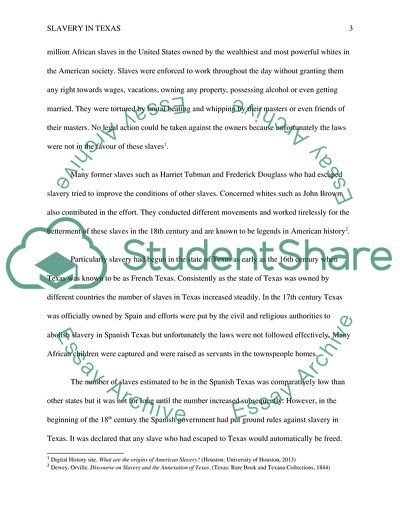Cite this document
(Slavery in Texas Essay Example | Topics and Well Written Essays - 2000 words, n.d.)
Slavery in Texas Essay Example | Topics and Well Written Essays - 2000 words. https://studentshare.org/history/1811867-slavery-in-texas-from-beginning-to-end
Slavery in Texas Essay Example | Topics and Well Written Essays - 2000 words. https://studentshare.org/history/1811867-slavery-in-texas-from-beginning-to-end
(Slavery in Texas Essay Example | Topics and Well Written Essays - 2000 Words)
Slavery in Texas Essay Example | Topics and Well Written Essays - 2000 Words. https://studentshare.org/history/1811867-slavery-in-texas-from-beginning-to-end.
Slavery in Texas Essay Example | Topics and Well Written Essays - 2000 Words. https://studentshare.org/history/1811867-slavery-in-texas-from-beginning-to-end.
“Slavery in Texas Essay Example | Topics and Well Written Essays - 2000 Words”. https://studentshare.org/history/1811867-slavery-in-texas-from-beginning-to-end.


